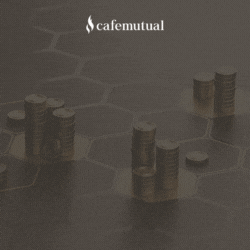The presentation was based on the paper ‘Mutual Fund Competition, Managerial Skill and Alpha Persistence’ authored by Nitin Kumar, ISB, Gerard Hoberg, University of Southern California and Nagpurnanand Prabhala, University of Maryland and was published in Review of Financial Studies. It also looks at the impact of mutual fund competition on returns and the implications for investors, fund managers and rating agencies.
At Cafemutual Confluence 2018, Nitin pointed out the deficiencies in the current benchmarking method and recommended a new method to compare funds. He also talked about the impact of competition on alpha generation.
Currently, we think of benchmarking in terms of a box with one axis denoting style and the other axis denoting size. Schemes with similar style and size are considered to be peers and included in the same box. For e.g. if there are three funds in a box then the three are peers. However, this approach has its shortcomings, said Nitin.
According to him, defining peers by set parameters is a rigid approach. To elaborate he shared an example of a fund, which shares overlapping strategies with two boxes. Considering funds from only one box as its peers will give a misleading and incomplete picture.
To overcome these shortcomings, Nitin suggested a radically different approach called customised benchmarking. Rather than determining peers by rigid parameters, Nitin recommends evaluating peers in a fluid manner based on their investment strategy.
When you adopt customised benchmarking, each fund will have its own benchmark basis its investment strategy and size. The idea is to find funds with the most similar strategy and benchmark the performance of these funds against the selected fund. Running this exercise for all funds in the market will give investors, fund managers and AMCs an overall sense of the market. It will also help them identify the competitive and less competitive segments in the market.
Overall, customised benchmarking helps evaluate benchmark adjusted performance (here the comparison is with other funds in the peer set) which they call ‘customised peer alpha’ (CPA). CPA = Return of the fund – average return of the peer group. It also helps us understand who the closest competitors of the fund are.
A statistical analysis of US funds basis these parameters revealed that funds with high CPA in the preceding year outperformed low past CPA funds in the next one year. Moreover, the outperformance of high past CPA funds compared to low past CPA funds was inversely related to the competition they face.
Nitin then shared the results of a follow-up study, which evaluated how competition influenced a trend following investment strategy. The trend following investment strategy involves buying a stock when its price is rising. Here the investor hopes to benefit from the positive momentum in the market in the hope that its price will rise further.
Analysing this strategy taking S&P 500 stocks, Nitin has observed that when the competition is high (that is more number of funds are interested in a stock) then the possibility of negative return increases and the risk adjusted return decreases. Nitin goes on to conclude that fund managers may want to explore segments wherein competition is low and investible stocks are surrounded by less number of peer funds as the strategy works best in those scenarios.
Nitin summarises the presentation by saying that the new benchmarking method does away with silos in peer comparison and develops customised peers, which are closer to the selected fund in terms of strategy. It also proposes a new measure of skill (CPA) which predicts alpha only in markets with low competition.






